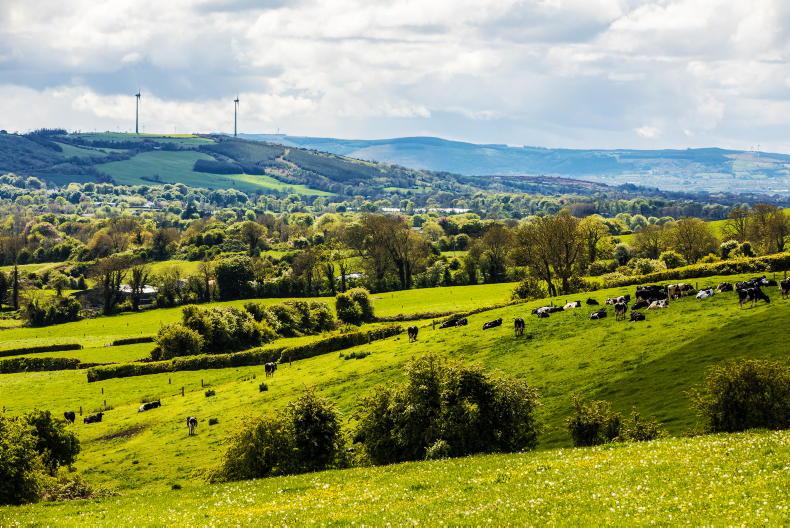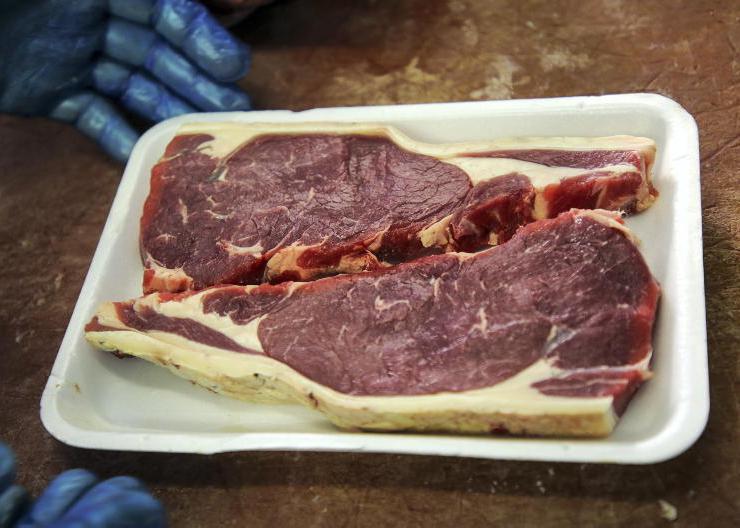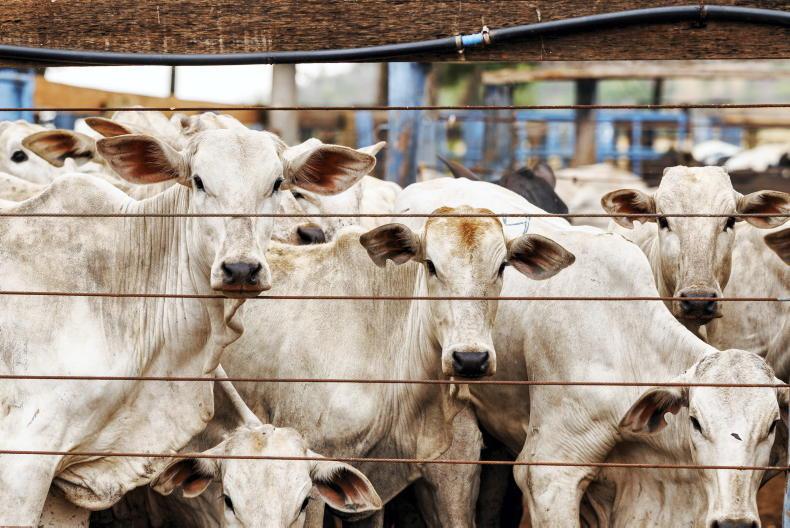The European Commission has published its vision of what Irish farm payments should look like under the Common Agricultural Policy (CAP).
The EU’s executive body has issued recommendations to all 27 member states on what should be included in their CAP strategic plans, which will govern where funds are spent.
Ireland’s recommendations were finalised after intensive discussions with the Department of Agriculture.
The Commission made the following recommendations to Ireland:
Continue internal convergence
Internal payment flattening should be continued to “improve the viability of farms”, particularly medium-sized farms and farms in areas facing natural constraint.
A new payment fund, the Complementary Redistributive Income Support for Sustainability (CRISS), should also be introduced. This fund will be financed through the capping of larger payments.
More environmental and climate schemes
The Commission wants to see Irish agriculture make “a general move towards more sustainable farming practises” by linking farm payments to more environmental and climate-related actions.
It wants a focus on improved nutrient management to reduce nutrient loss. Tough cross-compliance rules, particularly in hotspots, as well as support schemes are envisaged.
The conservation status of grasslands and heathlands also needs to be improved in the Commission’s opinion, again through a mix of cross compliance and, where necessary, funded schemes.
“Ireland should take steps to maintain extensive grazing, extend the area of species-rich grasslands, adapt mowing practices to habitat need and prevent harmful burning of vegetation,” it says.
Address tail docking in pigs and markets for male dairy calves
Animal welfare is a key focus for the European Commission. In Ireland, it has identified two main issues – tail docking in pigs and male dairy calves.
It says actions are needed to improve the viability of male dairy calves in “locally based production systems”, signalling a desire to reduce dependence on live exports.
On tail docking, progress has to be made, as it remains routine practise with no recent change in farm conditions.
Improve access to land and finance for young farmers
The declining trend of young farmers was highlighted by the Commission.
It pins the problem to a lack of access to land and finance.
It says this needs to be addressed through new or improved financial instruments, something that will also support investment in sustainable practises, supports for more co-operation between farm generations and targeting inheritance constraints.
Increase the area farmed organically
Referenced several times throughout the document is the Commission’s desire to see more organic farming in Ireland.
Currently, only 2% of land is managed organically, significantly less than the EU average of 8%.
It suggests supporting farmers to make the conversion followed by maintenance payments, but adds that steps to develop an organic market may also be needed.
Greater protections for peatlands
“Halt the deterioration of Irish peatlands and encourage their restoration,” the Commission says.
In the next CAP, the protection of peatlands will become part of cross compliance, making it a necessary requirement for farmers to receive their payment.
On top of that, schemes to rewet bogs could be considered.
Step up tree planting
The Commission believes Ireland is falling behind in the area of forestry.
It wants to see more tree planting with species mixes which are “appropriate in terms of biodiversity, adaptation to climate change, carbon sink capacity, and resistance to pests and diseases”.
It suggests agro-forestry as an option with supports for not only afforestation, but also advice on species selection, and integrating woodland into farm management.
Next steps
While the Commission has only made recommendations, it will expect them to be reflected in Ireland’s CAP strategic plan.
Ireland now has until the end of next year to finalise its plan before sending it to the Commission for approval in 2022.
Read more
EU leaders strike a deal on budget following logjam
EU recommends what Ireland should have in its CAP plan
The European Commission has published its vision of what Irish farm payments should look like under the Common Agricultural Policy (CAP).
The EU’s executive body has issued recommendations to all 27 member states on what should be included in their CAP strategic plans, which will govern where funds are spent.
Ireland’s recommendations were finalised after intensive discussions with the Department of Agriculture.
The Commission made the following recommendations to Ireland:
Continue internal convergence
Internal payment flattening should be continued to “improve the viability of farms”, particularly medium-sized farms and farms in areas facing natural constraint.
A new payment fund, the Complementary Redistributive Income Support for Sustainability (CRISS), should also be introduced. This fund will be financed through the capping of larger payments.
More environmental and climate schemes
The Commission wants to see Irish agriculture make “a general move towards more sustainable farming practises” by linking farm payments to more environmental and climate-related actions.
It wants a focus on improved nutrient management to reduce nutrient loss. Tough cross-compliance rules, particularly in hotspots, as well as support schemes are envisaged.
The conservation status of grasslands and heathlands also needs to be improved in the Commission’s opinion, again through a mix of cross compliance and, where necessary, funded schemes.
“Ireland should take steps to maintain extensive grazing, extend the area of species-rich grasslands, adapt mowing practices to habitat need and prevent harmful burning of vegetation,” it says.
Address tail docking in pigs and markets for male dairy calves
Animal welfare is a key focus for the European Commission. In Ireland, it has identified two main issues – tail docking in pigs and male dairy calves.
It says actions are needed to improve the viability of male dairy calves in “locally based production systems”, signalling a desire to reduce dependence on live exports.
On tail docking, progress has to be made, as it remains routine practise with no recent change in farm conditions.
Improve access to land and finance for young farmers
The declining trend of young farmers was highlighted by the Commission.
It pins the problem to a lack of access to land and finance.
It says this needs to be addressed through new or improved financial instruments, something that will also support investment in sustainable practises, supports for more co-operation between farm generations and targeting inheritance constraints.
Increase the area farmed organically
Referenced several times throughout the document is the Commission’s desire to see more organic farming in Ireland.
Currently, only 2% of land is managed organically, significantly less than the EU average of 8%.
It suggests supporting farmers to make the conversion followed by maintenance payments, but adds that steps to develop an organic market may also be needed.
Greater protections for peatlands
“Halt the deterioration of Irish peatlands and encourage their restoration,” the Commission says.
In the next CAP, the protection of peatlands will become part of cross compliance, making it a necessary requirement for farmers to receive their payment.
On top of that, schemes to rewet bogs could be considered.
Step up tree planting
The Commission believes Ireland is falling behind in the area of forestry.
It wants to see more tree planting with species mixes which are “appropriate in terms of biodiversity, adaptation to climate change, carbon sink capacity, and resistance to pests and diseases”.
It suggests agro-forestry as an option with supports for not only afforestation, but also advice on species selection, and integrating woodland into farm management.
Next steps
While the Commission has only made recommendations, it will expect them to be reflected in Ireland’s CAP strategic plan.
Ireland now has until the end of next year to finalise its plan before sending it to the Commission for approval in 2022.
Read more
EU leaders strike a deal on budget following logjam
EU recommends what Ireland should have in its CAP plan









SHARING OPTIONS